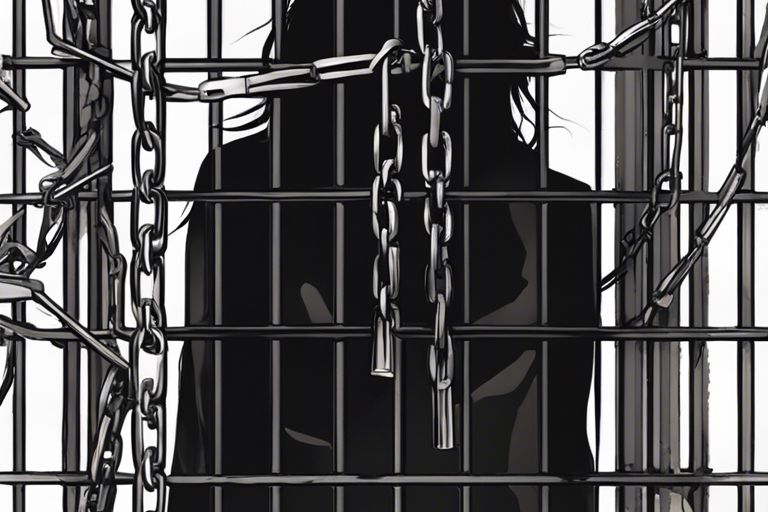What Does It Mean When a Man Hits You

Understanding the implications of a man hitting you is crucial for your safety and well-being.
This blog post will research into the seriousness of domestic violence and provide valuable insights on recognizing the signs of abuse in a relationship.
Key Takeaways:
- Physical Abuse: When a man hits you, it is a form of physical abuse and should not be tolerated.
- Warning Sign: It is a clear warning sign that the relationship is unhealthy and potentially dangerous.
- Seek Help: If a man hits you, it is important to seek help and support from friends, family, or trained professionals.
- Safety First: Your safety should be the top priority, and it may be necessary to leave the relationship to protect yourself.
- You Deserve Better: Remember that you deserve to be treated with respect and kindness, and no one has the right to hurt you.
Recognizing Abuse
Physical Abuse Defined
Recognizing physical abuse is crucial in identifying an abusive relationship. Physical abuse involves any form of physical harm or injury inflicted by one partner on the other. This can range from hitting, punching, slapping, kicking, or any other form of physical violence.
Signs of an Abusive Relationship
An abusive relationship is characterized by a pattern of behaviors that seek to control, manipulate, or dominate the partner. This can include emotional, verbal, physical, or bad abuse. Signs of an abusive relationship can be subtle at first, such as jealousy, possessiveness, or controlling behavior. Over time, these behaviors can escalate into more overt forms of abuse.
For instance, if your partner constantly monitors your whereabouts, isolates you from friends and family, or belittles you in front of others, these are warning signs of an abusive relationship. It’s important to take these signs seriously and seek help if you are in this situation.
Why Men Resort to Violence
Psychological Factors
Some psychological factors that may contribute to men resorting to violence include unresolved trauma, poor impulse control, and deep-seated feelings of inadequacy. These issues can lead to a sense of powerlessness and a need to exert control through physical means.
- Unresolved trauma
- Poor impulse control
- Feelings of inadequacy
This can create a volatile situation where a man may lash out in a violent manner without fully understanding the consequences of his actions.
Social and Cultural Influences
To better understand why men may resort to violence, it is necessary to consider social and cultural influences. Influences such as toxic masculinity, patriarchal norms, and societal expectations of dominance can all play a role in shaping male behavior. These factors can perpetuate the belief that violence is an acceptable way to assert power and control.
Navigating the Aftermath
Immediate Steps to Take
After experiencing any form of physical violence from a man, it’s crucial to prioritize your safety. Seek immediate medical attention if needed, contact trusted friends or family, and consider reaching out to local authorities or hotlines for support and guidance. Do not forget, you are not alone, and there are resources available to help you through this challenging time.
Long-Term Healing and Support
Aftermath of such trauma may manifest in various ways, including emotional distress and physical symptoms. Long-term healing and support are imperative in recovering from the trauma of violence. Consider therapy, support groups, or counseling to address the emotional scars and rebuild your sense of safety and self-worth.
Long-term healing and support are processes that take time and effort, but they are vital in reclaiming your sense of agency and well-being. Surround yourself with understanding and supportive individuals who can help you on your journey towards healing.
Preventing Abuse and Promoting Healthy Relationships
Education and Awareness
Many forms of abuse stem from a lack of understanding about healthy boundaries and communication in relationships. Education plays a crucial role in preventing abuse by raising awareness about the warning signs and promoting healthy relationship dynamics. It is important to educate individuals about what constitutes healthy behavior and how to recognize and address red flags in relationships.
Building Strong, Respectful Partnerships
Relationships thrive on mutual respect and trust. Building strong, respectful partnerships involves open communication, empathy, and setting boundaries. Respectful partners value each other’s opinions, feelings, and well-being, prioritizing mutual growth and support. It is important to cultivate a relationship built on trust and respect to create a safe and nurturing environment for both individuals.

Final Words
Hence, when a man hits you, it is never acceptable or justified. It is a form of violence and abuse that should never be tolerated. Recall, you deserve to be treated with respect and kindness in any relationship. Don’t hesitate to seek help and support if you find yourself in an abusive situation. You are valued, and your safety and well-being should always be a top priority. Surround yourself with people who uplift and cherish you, and never settle for anything less than the love and respect you truly deserve.
FAQ
Q: What does it mean when a man hits you?
A: If a man hits you, it is a form of physical violence and is never okay. It can indicate abusive behavior and should not be tolerated. Seek help and support if you are in this situation.
Q: How should I respond if a man hits me?
A: Your safety is the top priority. If a man hits you, remove yourself from the situation if possible and seek help from trusted friends, family, or authorities. Be mindful of, you deserve to be treated with respect and care.
Q: Are there warning signs of potential violence in a relationship?
A: Yes, there are warning signs to look out for, such as controlling behavior, possessiveness, jealousy, and aggression. It’s important to address these red flags early and seek help if needed.
Q: Can abusive behavior be changed or stopped?
A: While it is possible for some individuals to change their behavior with professional help and support, it is not guaranteed. Safety should always come first, and seeking help from a counselor or support group is advisable.
Q: Where can I find help if I am experiencing abuse from a man?
A: You are not alone, and there are resources available to support you. Contact local domestic violence hotlines, shelters, or counseling services for assistance. Be mindful of, your safety and well-being are important.






